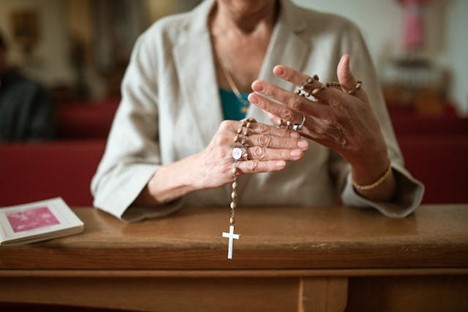With Christians subjected to violence, discrimination, and persecution for their faith, Christian persecution is still a very alarming problem in many different countries all around. Christianity is seen in many of these places as a threat to political stability, social order, or cultural identity, so affecting its adherents harshly. Though persecution comes in many forms—from overt violence and government persecution to social exclusion and harassment—the common thread is a growing intolerance that keeps Christian communities pushed to the margins of society. Christian leaders are arrested in some nations, their churches destroyed, and their teachings banned. This struggle calls for attention and action; it is not only historical but also current reality. Christians all around live in a progressively dangerous environment where their rights and safety are under continuous attack.
Escalating North Korean Religious Persecution
For Christians, North Korea is among the most hostile places; religious freedom is practically nonexistent there, and adherents suffer some of the worst kinds of persecution known to exist. The nation runs under a rigid state ideology that demands allegiance to the Kim family, and any departure—especially religious beliefs outside of the state-approved worship—may result in harsh punishment. Christianity's links to foreign influences and ability to challenge the absolute power of the ruling family helped to make it a subversive threat. The government keeps close control over the people, and Christians are sometimes compelled—if at all—to practice their faith in secret. For those who are found, the fallout is terrible. In North Korea, Christians run across detention, torture, and even execution. Some are sent to labor camps where they suffer abuse, malnutrition, and hard living circumstances.
China's Quiet War on Christianity
Particularly under President Xi Jinping, who has supervised a tightening of state control over religious practices, Christian persecution in China has escalated recently. Particularly as China develops politically and economically, the Chinese government sees Christianity as a foreign influence that could subvert its control. Regarding religion, the Communist Party advocates rigorous control whereby all religious activity has to be formally approved by the government. Pastors and church officials are routinely arrested or watched; churches not registered with the government face closure. Created by the government to regulate Protestant Christianity, the "Three-Self Patriotic Movement" demands that churches follow government policies, influencing Christian doctrine and practice. Some churches have even been obliged to substitute portraits of Communist leaders for images of Christ. In 2014, a church in Zhejiang province was destroyed; other Christian symbols are routinely taken down or destroyed. These efforts are part of the broader pattern of Christian persecution in China, where both public and private expressions of faith are heavily restricted, reflecting the government's growing intolerance toward religious diversity.
Islamic Extremist Religious Intolerance in Pakistan
Another nation where Christians suffer extensive prejudice and violence—often at the hands of extreme Islamist groups—is Pakistan. Though the constitution of the nation guarantees freedom of religion, Christians—who account for roughly 1.5% of the population—risk their life as well as extreme social marginalization. Blasphemy laws, which penalize anyone accused of insulting Islam harshly, aggravate the matter even more. Often based on weak or false allegations, these laws have been routinely targeted against Christians. One rumor or personal conflict can set off an arrest, violence, or perhaps death. Beyond the legal challenges, Christians in Pakistan experience deliberate social exclusion. Often compelled to live in segregated areas with limited access to healthcare, education, and employment, they are
Christians' Unyielding Persecution in Nigeria
The rising tide of extreme groups such as Boko Haram and the Islamic State West Africa Province (ISWAP) has made Christian communities, especially in the northern and Middle Belt areas, regular targets of violence in Nigeria. Viewing Christianity as an enemy philosophy, these groups frequently commit horrific acts of violence, including mass shootings, bombings, and kidnappings. In these areas, where religious and ethnic conflicts abound, the Nigerian government has battled to defend Christians; the military has been repeatedly accused of not acting decisively. With thousands of Christians dead in the past ten years alone, the scope of the violence is astounding. Particularly vulnerable are women and children, who are sometimes kidnapped by militants and compelled into sexual slavery or marriage. Church buildings are often targets for attack; many have been destroyed. I much
Eritrea's Systematic Repression of Christianity
Small nation Eritrea in the Horn of Africa is well-known for its totalitarian government, which tightly regulates all religious groups—especially Christians. Viewed as a challenge to its power, the Eritrean government has tried to eradicate Christianity by intimidation, detention, and monitoring. Many Christians who follow their faith outside of state-owned churches find themselves imprisoned. The nation leaves all other forms of Christianity to be regarded as illegal, only recognizing four religious groups: Eritrean Orthodox, Sunni Islam, Roman Catholicism, and Evangelical Lutheranism. Churches not connected to the government are closed, and attendees of services or even private readings of the Bible risk imprisonment.
Conclusion
Apart from a humanitarian concern, the persecution of Christians worldwide serves as a sobering reminder of the need for world consciousness and action. The international community has to speak out as these groups suffer in silence, supporting the defense of religious liberties and the fundamental rights of people to practice their faith without regard for consequences.





Comments